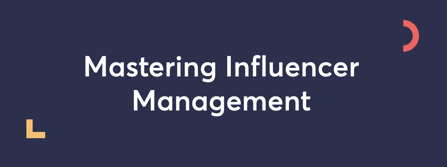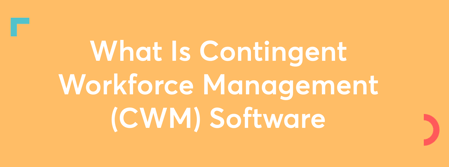- 10 Mar 2019
- 4 mins read
- Posted in
With the trend towards remote working – even for full-time employees – businesses are being forced to think differently about their working practices. Research by Accenture, ‘Rethinking Mobility in the Workplace’ points out that in order to have a productive arrangement, managers should focus on outcomes, not time. This requires a change in attitude but it’s one worth adopting, given that happier staff lead to a happy work environment.
But that’s not all. Given the increase in organisations of all sizes using freelancers to remain agile, the likelihood is that you’ll need to familiarise yourself with this form of working practice in the not too distant future. This will require even greater project management skills – considering you’re not likely to meet your freelancers face-to-face – something which can be greatly eased, thanks to the latest Freelancer Management Systems (FMS). So, how do you successfully manage remote teams like this? Here are some handy tips to help you out:
Plan and organise – don’t dive straight in
Think about what you want to achieve. What is the project you’re looking to outsource? And why is it best dealt with by freelancers? Well defined projects with clear boundaries of what is required are prime candidates for outsourcing. When you know what you want, you’ll be in a better place to make sure that you have a robust workflow in place before you even start talking to freelancers. This is where your FMS will come into play. It will ensure that the workflow is efficient and that everyone who uses the system adopts the same processes so nothing is left to chance.
Take care when hiring
Think carefully about the kind of person you want to hire. Are you comfortable with having someone that’s new to the game of freelancing? Or do you want someone who has more experience under their belt? The latter will be seasoned at working independently – they’ve built their business on it. They’ll make sure they work within deadlines, are great at communicating or letting you know when they won't be available. After all, you don’t want to assign a project only to find that they suddenly disappear without a trace.
However, it’s very unlikely that this will happen. As The Association of Independent Professionals and the Self-Employed (IPSE) points out in its guide, ‘Flex: An Agile Approach to Talent Management in the Digital Economy’, “...self-employed professionals take responsibility for delivery and therefore don’t need to be managed like an employee. This reduces the management overhead for the client and gives the freelance contractor the flexibility necessary to deliver the project according to his/her own expert judgment.” And that’s the key: you’re not hiring an employee you’re hiring a service provider. It’s important to make that distinction.
Take time to onboard
This obviously depends on the project. Short term projects that only require a few days may require little to no onboarding. For longer-term projects, it’s important to have a proper process in place. This is where you’ll discuss the company background, the requirements of the project, timescales, how you work and the communication channels to use.
Let them know that they’re being added to your FMS - and the process for what they’ll need to do. This will be part of your onboarding procedure which sets out the information that’s required from the freelancer.
Make sure that they know the importance of responding quickly so that you can get them fully up to speed with all the relevant documents in place such as contracts.
Brief fully
If you don’t provide a proper brief then it’s going to curtail the results that you’re likely to achieve. Detailed briefs should set the boundaries of the project – what is and isn’t in scope, the format in which the project is expected to be received and any other relevant information that will help the freelancer deliver on what you’re asking them.
FMS platforms like TalentDesk.io provide the capability to set project tasks and provide a central store of information so that the brief doesn’t get lost and everyone who is working on the project can refer back to it to make sure that the work they produce is in line with expectations.
Set deadlines
These should be realistic and can be tracked within an FMS, along with any milestones to be met and how long the project will last. This will ensure that everyone has visibility of what needs to be completed and by when.
You should also avoid starting a freelancer on a project and then chopping and changing them between activities. Not only is that bad for productivity it also highlights that the initial project wasn’t clearly thought through – or that you’re not organised or able to manage your own time well.
If you’re paying by the hour, you’ll waste precious resources and if they’ve pitched on a fixed fee basis then you could be outside the agreed scope. If an additional project or task is urgent, you may be better off outsourcing to another freelancer so that everything remains on track.
Regularly review progress
Make sure you have regular weekly meetings. These check-ins are important so that projects progress in the way they should and that any issues can be resolved. For longer projects, you’ll want to review the relevant milestones. Again, an FMS will help you to manage this process much more easily.
It’s also a great way to ensure that you have an audit trail for the project. That way it can be referred back to at a later date, whether that’s to review the success of a project, analysis costs, or to understand the return on investment.
Use of software and tech
With an FMS such as TalentDesk.io, your employees can manage their freelancer teams and track projects much more efficiently, saving time, effort and resources. And when coupled with software such as Zoom, Trello or Slack this encourages a flow of information and collaboration, making sure everyone stays informed and that timely feedback can be provided. It also helps freelancers to feel an important extension to your team. And that’s the thing.
Managing a remote team – and one that you’ll probably never meet – should be something to embrace. Many freelancers are highly adept at working with businesses from afar. They’ve built their own reputation on making that a success – and the chances are, with the help of technology, they’ll make it a success for your business too.

Floris ten Nijenhuis
Speak to us to find out how we can help you pay your contractors more efficiently
Related articles
What is a Vendor Management System (VMS)? A Complete Guide
What is a Vendor Management System (VMS)? A Complete Guide
Discover what a Vendor Management System (VMS) is and why it’s essential for managing your workforce. Streamline vendor management with ease.
Best Contractor Management Software for 2025
Best Contractor Management Software for 2025
Discover the best contractor management software to streamline workflows, ensure compliance, and simplify payments. Manage global contractors with ease.

What is a Contractor Of Record (COR)?
Discover the role of a Contractor of Record (COR) – Learn how a COR streamlines contractor compliance and safeguards your business legally.

Mastering Influencer Management: Strategies for Effective Collaboration
Our guide to influencer management, exploring strategies, tools, and tips to create successful influencer relationships and enhance your marketing impact.

10 Reasons Why You Don’t Need a Contractor Management System
Discover 10 hilarious reasons why you absolutely don’t need a contractor management system - because who needs efficiency, happy freelancers, or sleep?

2024 Engineering Recap
See how we enhanced features and added automation in 2024 to improve TalentDesk user experience. Here's a full recap and a look ahead to 2025.

What Is Contingent Workforce Management Software?
Discover how contingent workforce management software enhances cost savings & access to talent. Learn about essential tools, compliance & best practices.

Deel vs. the Competition: Discover the Best HR Software Alternatives
Discover the best Deel alternatives for global HR management. Compare features, pricing, and reviews to find the best solution for your global workforce.
The Ultimate Guide to External Game Development
The Ultimate Guide to External Video Game Development
Explore our ultimate guide on external game development, covering crucial strategies, tools, and tips to manage freelance developers efficiently.
How to Manage Subject Matter Experts
How to Manage Subject Matter Experts
Unlock the full potential of your projects with our expert guide on managing Subject Matter Experts. Learn strategies for effective collaboration.
